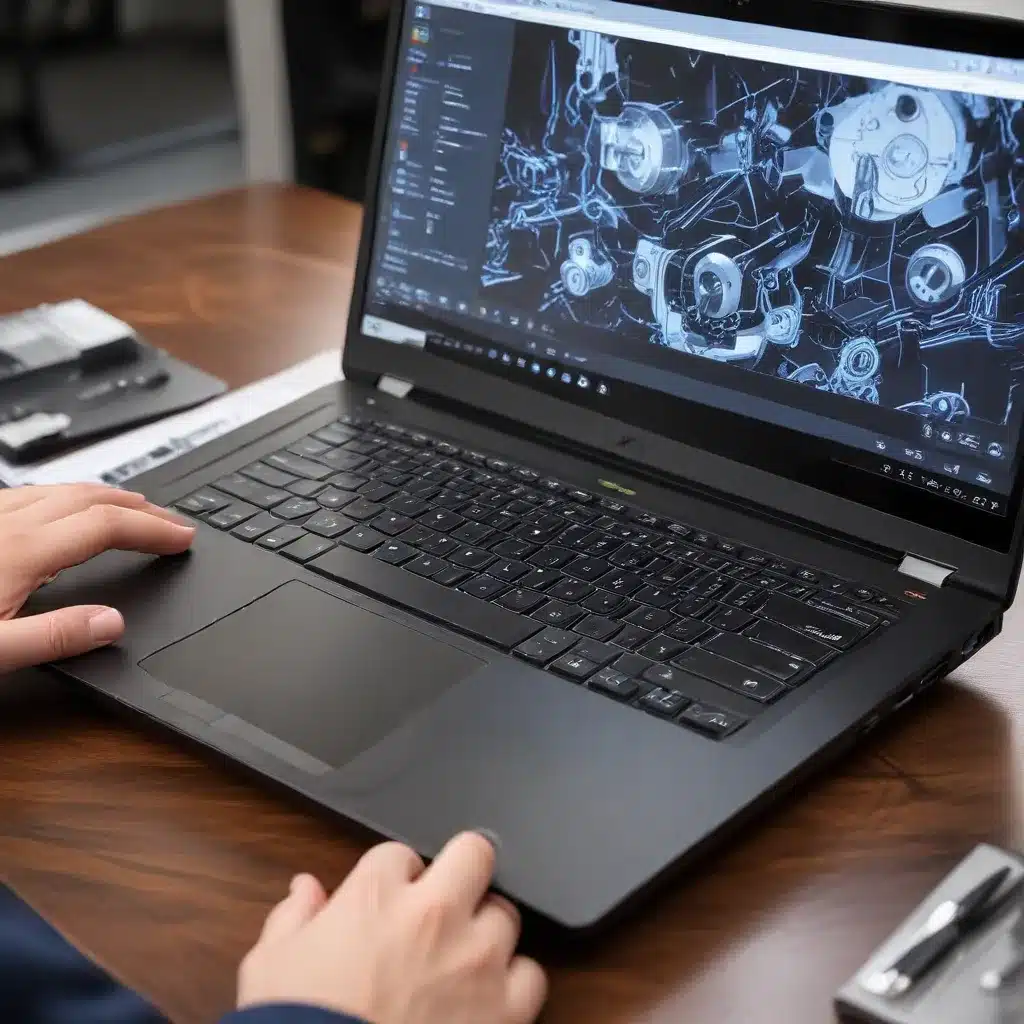
As an experienced IT professional, I’ve had the privilege of working with engineers across various disciplines, including mechanical and structural engineering. These fields demand specialized software, robust hardware, and reliable performance to handle complex simulations, intricate designs, and extensive calculations.
In this comprehensive article, I’ll explore the key factors to consider when selecting the best laptops for mechanical and structural engineers, providing practical insights and recommendations to help you make an informed decision.
Prioritizing Performance
When it comes to engineering workloads, performance is paramount. Mechanical and structural engineers often work with large, data-intensive files, requiring powerful processing capabilities, ample memory, and efficient storage solutions.
Processor (CPU): Look for laptops equipped with the latest Intel Core i7 or i9 processors, or their AMD Ryzen counterparts. These high-performance CPUs can handle the demands of engineering software, from finite element analysis to computational fluid dynamics.
Memory (RAM): Opt for a minimum of 16GB of RAM, with the ability to upgrade to 32GB or more. Memory-intensive applications like 3D modeling, simulation, and rendering will benefit greatly from this added capacity.
Storage: Solid-State Drives (SSDs) are a must-have for engineers. SSDs offer lightning-fast data access and short boot times, significantly improving the overall responsiveness of your system. Consider a combination of a high-capacity SSD (500GB or more) for your primary storage, paired with a traditional hard disk drive (HDD) for additional file storage.
Graphics: While not as critical as the CPU and memory, a dedicated graphics card can enhance your engineering experience, especially when working with 3D models, complex visualizations, or GPU-accelerated simulations. Look for laptops with NVIDIA GeForce or AMD Radeon dedicated graphics cards.
Selecting the Right Display
The display is a crucial component for mechanical and structural engineers, as it directly impacts the accuracy and clarity of their work.
Screen Size: Opt for a laptop with a 15-inch or 17-inch display, providing sufficient screen real estate for your engineering software and project files.
Display Resolution: Choose a laptop with a high-resolution display, preferably 1080p (1920 x 1080) or higher. This will ensure that your designs, drawings, and simulations are displayed with exceptional detail and clarity.
Color Accuracy: Consider a display with accurate color representation, as this can be essential for tasks like material selection, stress analysis, and visualization. Look for laptops with IPS (In-Plane Switching) panels or high-end display technologies that offer wide color gamut coverage and accurate color reproduction.
Connectivity and Portability
While raw performance is essential, mechanical and structural engineers also need laptops that can seamlessly integrate with their work environments, both in the office and on-site.
Ports and Connectivity: Ensure your laptop has a range of connectivity options, including USB 3.0/3.1 ports, HDMI, and Thunderbolt 3 (or USB-C) for external display connections and data transfers. Additionally, consider laptops with Ethernet ports for reliable wired network access.
Portability: Depending on your work requirements, a balance between performance and portability may be necessary. Look for laptops with a slim and lightweight design, without compromising on the essential hardware components. This will make it easier to transport your device to job sites, meetings, or remote work locations.
Battery Life: Seek laptops with long-lasting battery life, especially if you frequently work away from power outlets. Aim for laptops that can provide at least 6-8 hours of battery life on a single charge, ensuring you can stay productive throughout the day.
Recommended Laptop Models for Mechanical and Structural Engineers
Based on the criteria we’ve discussed, here are some of the top laptop models that cater to the needs of mechanical and structural engineers:
1. Dell Precision 5550
- Processor: Intel Core i7-10850H or i9-10885H
- Memory: 16GB or 32GB DDR4 RAM
- Storage: 512GB or 1TB SSD
- Graphics: NVIDIA Quadro T2000
- Display: 15.6-inch 4K UHD (3840 x 2160) IPS display
- Connectivity: Thunderbolt 3, HDMI 2.0, Ethernet, USB 3.2
2. HP ZBook Fury 15 G7
- Processor: Intel Core i7-10850H or i9-10885H
- Memory: 16GB or 32GB DDR4 RAM
- Storage: 512GB or 1TB SSD
- Graphics: NVIDIA Quadro T1000 or T2000
- Display: 15.6-inch FHD (1920 x 1080) or 4K UHD (3840 x 2160) IPS display
- Connectivity: Thunderbolt 3, HDMI 2.0, Ethernet, USB 3.2
3. Lenovo ThinkPad P15 Gen 2
- Processor: Intel Core i7-11800H or i9-11950H
- Memory: 16GB or 32GB DDR4 RAM
- Storage: 512GB or 1TB SSD
- Graphics: NVIDIA Quadro T1200 or RTX A2000
- Display: 15.6-inch FHD (1920 x 1080) or 4K UHD (3840 x 2160) IPS display
- Connectivity: Thunderbolt 4, HDMI 2.1, Ethernet, USB 3.2
4. Acer ConceptD 7 Ezel
- Processor: Intel Core i7-10750H or i9-10885H
- Memory: 16GB or 32GB DDR4 RAM
- Storage: 512GB or 1TB SSD
- Graphics: NVIDIA Quadro RTX 3000 or RTX 5000
- Display: 15.6-inch 4K UHD (3840 x 2160) IPS display with 100% Adobe RGB color accuracy
- Connectivity: Thunderbolt 3, HDMI 2.0, Ethernet, USB 3.2
These models strike a balance between performance, display quality, and portability, making them excellent choices for mechanical and structural engineers. Remember to consider your specific software requirements, project demands, and work environment when selecting the most suitable laptop for your needs.
Conclusion
Choosing the right laptop for mechanical and structural engineering is a crucial decision that can significantly impact your productivity and efficiency. By focusing on key factors like processing power, memory, storage, display quality, and connectivity, you can find a laptop that seamlessly supports your engineering workflows and helps you tackle even the most complex projects with confidence.
As an experienced IT professional, I hope this guide has provided you with valuable insights and practical recommendations to help you identify the best laptop for your engineering needs. If you have any further questions or require additional assistance, feel free to reach out to the IT Fix team. We’re here to help you make the most informed technology decisions to empower your engineering success.












